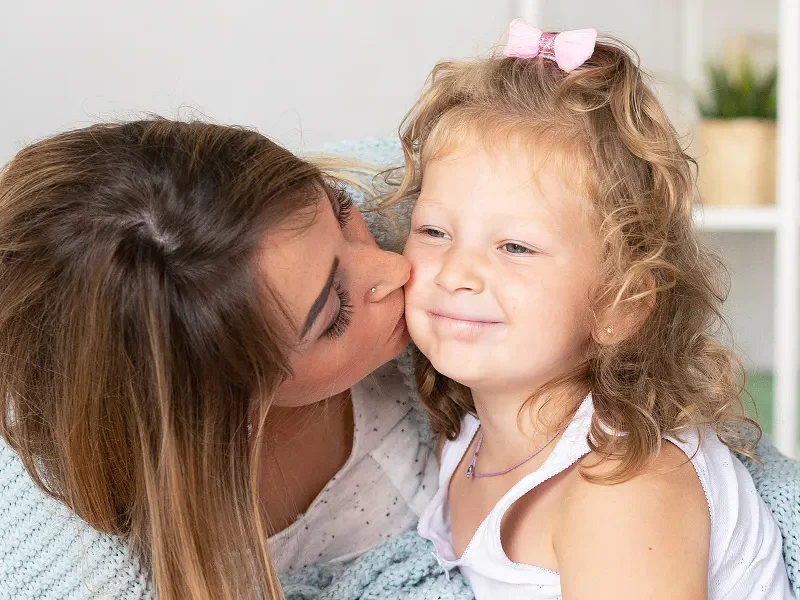When Margaret’s card declined at the checkout, cruel strangers mocked the elderly woman struggling with her baby granddaughter. Then a man’s voice cut through the chaos. She turned, bracing for more humiliation. But what happened next would turn her life in an unexpected direction.
I’m 72 years old, and I never imagined I’d be raising a baby again at this stage of my life.
Six months ago, my daughter Sarah packed a suitcase while I made breakfast in the kitchen. I heard her footsteps on the stairs. When she appeared in the doorway holding her two-week-old daughter, I thought she was just taking the baby for a walk to get some fresh air.
But instead, she gently placed Lily in her bassinet in the living room, tucking the blanket around her.
“I’m going to clear my head, Mom,” she said quietly, kissing the baby’s forehead.
“Okay, sweetheart,” I replied, stirring oatmeal on the stove. “Don’t stay out too long. It’s cold.”
But she never came back.
I didn’t notice the folded note sitting on the counter near the coffeepot. Not until the next morning, when I was cleaning up after another sleepless night. The words on it were brief, just one sentence scrawled in her handwriting: “Mom, I can’t do this. Don’t try to find me.”
I called her phone 20 times that day. Then 50. Then I lost count.
Every call went straight to voicemail. I contacted the police and filed a missing person report, but they said she was an adult who left voluntarily. There was nothing they could do unless there was evidence of foul play.
Every polite shrug from an officer felt like another door slamming shut in my face.
I tracked down the baby’s father next, a man Sarah had dated briefly. When he finally answered my call, his voice was cold and distant.
“Look, I told Sarah from the start I wasn’t ready for this,” he said flatly.
“But you have a daughter,” I pleaded. “She needs you.”
“You’re the grandmother,” he said. “Handle it.”
And with that, the line went dead. When I tried calling back, I discovered he’d blocked my number.
So here I am now, rocking a baby at 3 a.m., counting pennies at the kitchen table by noon. I used to think retirement meant leisurely book clubs, garden parties with friends, maybe even a cruise with other widows from my church.
Instead, I’m learning the exact price of diapers at every store within a ten-mile radius, comparing formula brands by the cent.
I live off my late husband’s pension and what remains of our savings, which shrinks a little more each month.
Some nights, I heat up canned soup for dinner and tell myself that Lily doesn’t know the difference between brand-name and store-brand formula. She’s healthy, and that’s what matters.
A few weeks ago was one of those days when everything felt impossibly heavy. My back ached from carrying Lily around all morning. The kitchen sink had started leaking again, and I couldn’t afford to call a plumber. The washing machine made that awful grinding noise, which meant it was probably dying, and I definitely couldn’t afford to replace it.
We were completely out of diapers and baby food, so I bundled Lily into her carrier, pulled on my worn winter coat, and headed to the grocery store.
As we stepped outside, I felt the cold November air hit us. I pulled my coat tighter around us both and whispered to Lily, “We’ll be quick, sweetheart. Grandma promises.”
Inside the store, absolute chaos greeted us. Holiday music blared from the speakers, much too loud. People were everywhere, arguing over the last discounted turkeys, and blocking aisles with overflowing carts. I tried to move quickly and headed toward the baby food aisle.
It felt like the whole world was preparing for joy while I was just trying to survive the week. Every cheery jingle that played only made the knot in my stomach tighter.
I grabbed a few jars of baby food, a small pack of diapers since I couldn’t afford the larger one, and one small piece of turkey breast. I wanted us to have something nice for Thanksgiving, even if it was just the two of us at my tiny kitchen table.
When I reached the register, I tried to smile at the young cashier. He looked exhausted, like he’d rather be absolutely anywhere else. I placed my items on the belt and slid my card through the reader.
Beep.
Declined.
My stomach did a flip because that had bever happened before.
Maybe the pension deposit hadn’t cleared yet, I thought. Maybe I’d miscalculated after paying the electric bill last week.
I tried again, my hand shaking slightly.
Beep.
The same result.
“Um, could you try one more time?” I asked the cashier.
Behind me, a man groaned loudly. “Oh, for God’s sake. What is this, a charity line?”
I mumbled an apology and fumbled with the card, my hands trembling now. Lily started to fuss in her carrier, her small whimpers turning into full cries.
I bounced her gently, whispering close to her ear, “Shh, it’s okay, baby. We’ll figure it out. Grandma will figure it out.”
A woman’s voice cut through the noise from somewhere further down the line. “Maybe if you spent less time having kids you can’t afford, you wouldn’t be holding up the line.”
Her friend laughed. “Yeah, seriously. Or at least buy what you can actually pay for. People like this make me sick.”
My cheeks felt like they were on fire. I wanted the floor to open up and swallow me whole. I reached into my purse with shaking hands and pulled out every crumpled bill and coin I could find. I counted it quickly… $8.
“Could you just ring up the baby food?” I asked the cashier softly. “Just the baby food, please.”
That’s when a deep, steady voice came from behind me.
“Ma’am. You—with the baby.”
I thought another person was going to humiliate me now. My heart pounded against my chest as I turned toward the voice slowly, my eyes closed as I braced myself for more cruel words.
But the look on his face wasn’t what I expected at all.
The man standing behind me was maybe in his mid-thirties, wearing a long black coat over a dark suit.
He looked like someone who belonged in a downtown office building, not standing in a crowded grocery store line next to an exhausted old woman with a crying baby.
He raised both hands slightly, palms out. “Please don’t be upset,” he said gently.
Before I could respond or ask what he meant, he stepped past me and spoke directly to the cashier.
“Cancel her order, please. Ring everything up again.”
The cashier blinked, clearly confused. “Sir, I don’t—”
“Please,” the man said firmly but kindly. “Just ring it all up again.”
The cashier shrugged and began scanning my items once more. The man pulled out his wallet and tapped his card on the reader before I could even process what was happening.
The beep sounded. Approved.
The store seemed to go quiet for just a moment. Then the murmuring began, spreading through the line like wildfire.
A man from further back scoffed loudly. “What, you gonna pay for all of us too, hero? Want a medal?”
Someone else snorted. “Yeah, maybe he’s running a charity now.”
The man turned to face them, his expression calm but his voice carrying authority. “You know what’s really sad?” he said. “You all stood here and watched an elderly woman struggle to pay for baby food. Instead of helping or even just staying quiet, you mocked her. You made her feel small.” He paused, letting his words sink in. “If that were your mother standing here, how would you feel?”
Everyone went silent. No one met his eyes. Even the woman who’d made the cruel comment looked down at her shoes, and the cashier suddenly became very interested in the register screen.
My face burned again, but this time it wasn’t from shame. It was from shock, gratitude, and emotions I couldn’t even name.
I didn’t know what to say. Words felt impossible.
“Thank you,” I finally whispered, my voice breaking. “Thank you so much. I don’t know how to—”
He smiled softly. “You don’t need to thank me, ma’am. Just take care of your little one. That’s all that matters.”
Lily had stopped crying, as if she could somehow feel the calm that had settled around us. I gathered my bags with trembling hands, still unable to fully believe what had just happened.
I waited near the exit while he finished his own shopping, watching him through the window as he paid for his items.
When he came out, I caught his arm gently.
“Please,” I said, the words tumbling out. “Give me your number or your email. I’ll transfer the money to you as soon as I can. I have it, I promise. I think something’s just wrong with my card, or maybe the deposit—”
He shook his head firmly. “No need for that. Really, there’s no need.”
Then his tone softened. “My mother passed away two months ago. You remind me of her.” He paused. “Please don’t offer to pay me back. I have more than enough money. It makes me feel better to do something good in her memory. It helps.”
Tears stung my eyes, blurring my vision. I hadn’t heard that kind of genuine kindness in such a long time.
He noticed me hesitating as I adjusted Lily’s carrier on my shoulder, shifting her weight.
“At least let me drive you home,” he said.
I wanted to refuse immediately. I’d been taught never to accept rides from strangers. But my legs were so tired, and the bus stop was a good 20-minute walk away. I’d stopped by the store on my way home from Lily’s doctor appointment, and getting back would take at least another hour with transfers.
“I don’t want to bother you,” I murmured. “You’ve already done so much.”
“You’re not bothering me,” he said softly. “Please. Let me help.”
His name was Michael, I learned as we walked to the parking lot. He had a sleek, expensive black car, the kind that I’d only ever seen in magazines. He carefully loaded my bags into the trunk, then surprised me completely by pulling out a child safety seat from the back.
“Here, let me buckle her in properly,” he said, reaching for Lily.
I hesitated only a moment before handing her over. He buckled her in with practiced efficiency, checking the straps twice.
“You have kids?” I asked as he started the engine.
He nodded, pulling out of the parking lot smoothly. “Yeah. Two. My little girl just turned three, and my son is seven. They keep us very busy.”
I smiled despite my exhaustion. “You must be a good father.”
He chuckled quietly. “I’m trying to be. Some days are better than others.”
As we drove, he asked about Lily. There was a genuine interest in his questions that made me tell him everything. I told him about Sarah leaving six months ago, about finding that note on the kitchen counter, and about the endless nights without sleep.
I even told him about stretching my husband’s pension and about choosing between paying the electric bill and buying the larger pack of diapers.
He listened without interrupting once, his eyes on the road but his attention clearly on my words.
“You must be completely exhausted,” he said finally. “Let me help you properly. I mean, I could hire you a nanny. Someone good, someone trustworthy with excellent references.”
I shook my head quickly, almost frantically. “No, I couldn’t possibly do that. I can’t afford—”
“You wouldn’t have to pay,” he interrupted gently. “I’ll cover it. All of it. In memory of my mom. She would have wanted me to help someone who needed it.”
I refused again, though his kindness was almost too much to bear. “You’ve already done enough. More than enough. Really.”
He didn’t argue further. When we reached my apartment building, he insisted on carrying the groceries upstairs himself. I thanked him one last time at my door, certain I’d never see him again. People like him didn’t stay in the lives of people like me.
But the next afternoon, I heard my doorbell ring.
When I opened it, Michael stood there with a woman who must have been his wife and two beautiful children. He was holding a pie dish in one hand, steam still rising from it.
“We came to invite you and Lily to Thanksgiving dinner tomorrow,” he said, smiling warmly. “And my wife brought something for you.”
His wife stepped forward, holding out a small folder.
“Hi, I’m Rachel,” she said kindly. “Michael told me about you and everything you’re going through.”
I opened the folder with shaking hands. Inside were photos and detailed notes about several professional nannies, complete with references and experience listings.
“We thought you might want to choose someone yourself,” Rachel continued. “Someone you feel comfortable with.”
I couldn’t speak. Tears filled my eyes and spilled over before I could stop them.
That Thanksgiving was the warmest, fullest holiday I’d experienced in years. Their home glowed with light and laughter. They treated me like family, like I belonged there. Their children played with Lily, showing her colorful toys, and making funny faces to coax out her first real smiles.
A few days later, Michael insisted again on hiring the nanny, and this time I accepted.
Her name was Patricia, and she was wonderful. For the first time since Sarah left, I could rest. I could actually breathe.
Sometimes, I still think about that day in the grocery store, about how cruel strangers became background noise and one stranger became family.
And every Thanksgiving since, I bring a homemade pie to Michael and Rachel’s house, just like the one they brought to mine that very first time.


